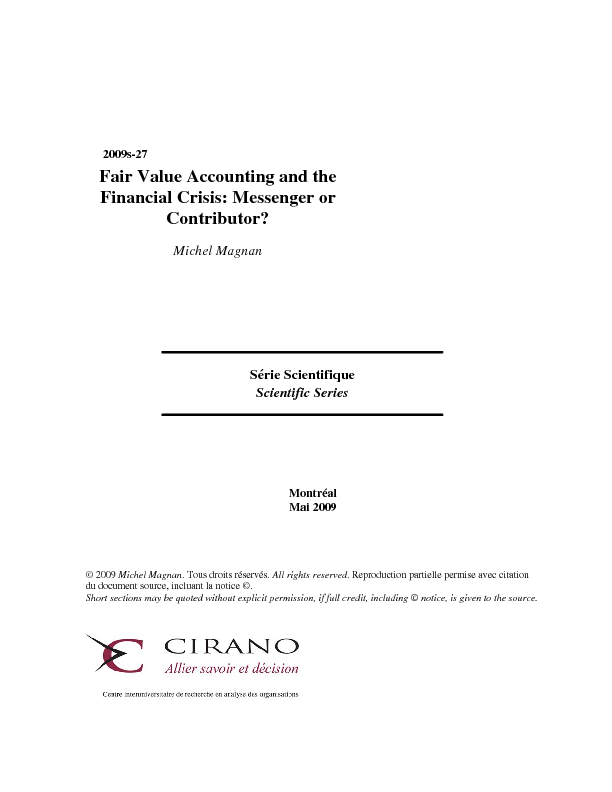Fair Value Accounting and the Financial Crisis: Messenger or Contributor?
Did fair value accounting play a role in the current financial crisis? This appendix explores the issue. Fair value accounting implies that assets and liabilities get measured and reflected on a firm`s financial statements at their market value, or close substitutes. Extensive academic research done over the past 20 years shows that financial statements that reflect the market values of assets or liabilities provide information that is relevant to investors. In other context, fair value accounting is just a messenger carrying bad news. In contrast, there is also another research stream which is quite critical of the perceived merits of fair value accounting, and which worries about how it undermines what constitutes the core of financial reporting. More specifically, it is argued that fair value accounting is difficult to verify, may be based on unreliable assumptions or hypotheses and provides management with too much discretion into the preparation of financial statements. Hence, according to this view, fair value accounting is not necessarily a neutral or unbiased messenger. Moreover, fair value accounting creates a circular dynamic in financial reporting, with markets providing the input for the measurement of many assets, thus affecting reported earnings which are then used by analysts and investors to assess a firm's market value. If markets become volatile, as has been the case in recent months, reported earnings also become more volatile, thus feeding investors apprehensions. Therefore, since fair value accounting is associated with more volatile and less conservative financial statements and, it may have allowed managers to delay the day of recognition as well as distorted investors and regulators' perceptions of financial performance and stability at the end of the financial bubble. However, once the economic pendulum swung back, fair value accounting may have magnified their views as to the severity of the current financial crisis, hence accelerating some negative trends.
[ - ]




